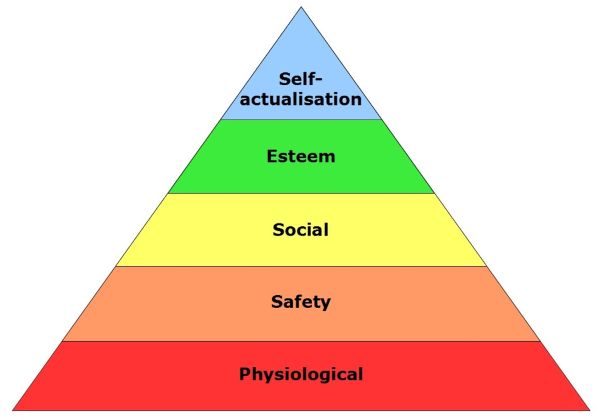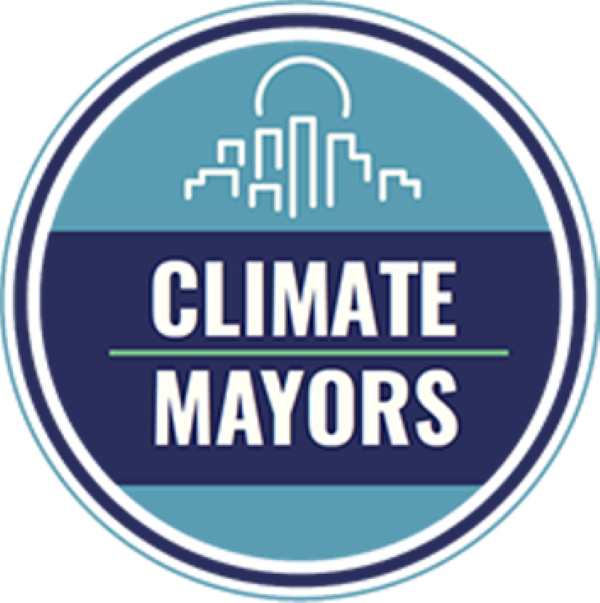I run a bi-monthly community meeting in the building where I live in association with my work with the Canadian Federal Liberal Party, where I am a riding policy chair. I have been running meetings like this for more than a decade with hundreds joining me to discuss what is important to them, the country and the world. It is a volunteer position that I am happy to do because I meet so many people with good ideas and others who are good listeners and willing learners.
One thing that has become abundantly clear from the legacy of these meetings is that Maslow’s Hierarchy of Needs pyramid accurately reflects most people’s concerns.
If you are unfamiliar with Abraham Maslow, in 1943, he published an article illustrated by a five-tier pyramid. It featured basic needs at the bottom and more advanced needs at the top. Here is what the pyramid looks like.

Maslow argued that the most basic human requirements were represented in the lower two tiers, and that without fulfilling those needs, the upper tiers could not be sustainably realized.
The bottom two, physiological and safety, are related to climate change. Physiological needs cover breathable air, drinkable water, nutrition, and shelter. Safety covers protection from external threats, including climate change, job security, social stability and public order.
Both lower tiers represent foundational needs upon which the upper three are built, and both are in play when dealing with the existential crisis of our time, not named Donald Trump. I’m talking about climate change, which unfortunately, comes with this Trump side story.
Following Trump’s second term inauguration in January 2025, he started dismantling federal government participation in climate change mitigation and adaptation efforts using executive orders. He has stripped the EPA, NOAA and other U.S. government organizations, fired staff, and abandoned research and data gathering on climate change. His budget, currently being reviewed by Congress, will gut the climate change provisions of the Inflation Reduction Act.
Internationally, Trump has pulled America out of the Paris Climate Agreement for a second time. His latest executive order, “Protecting American Energy From State Overreach,” issued on April 8, 2025, is intended to stop state and local authorities from taking action on climate change.
Trump consistently describes climate change as a Chinese-inspired hoax and has repeatedly told his legion of MAGA followers this on social media.
In response to Trump’s latest anti-climate change order, mayors in Tennessee, Nebraska, Idaho, Michigan, Illinois and Arizona recently got together as members of the bipartisan Climate Mayors working group representing 350 cities to bring the subject of climate change to the kitchen table. The Climate Mayors group represents 60 million Americans living in cities in 46 U.S. states.
The mayors noted that Americans were being put at risk by their President. They described climate change as making homes uninsurable, damaging infrastructure, endangering food security, influencing extreme weather events and making life more precarious for people.
Kate Gallego, Mayor of Phoenix, Arizona, and Chair of Climate Mayors, issued the following statement:
“The federal government does not have the authority to strip cities and states of their abilities to make laws that best serve their residents. Not only does this latest overreach step on local rights, it also fails to acknowledge the true costs of delaying the transition to a clean energy economy, both the enormous cost of continued environmental destruction and the political and social harm of retreating American leadership…In Phoenix, we expect to hit record or near-record temperatures this week, demonstrating the consequences of inaction that are already at our doorstep.”
The Mayor of Boise, Idaho, Lauren McLean, also issued the following comment:
“It was important that we help link climate action with kitchen-table issues that mayors are dealing with when they’re thinking about ensuring their cities are vibrant, with opportunity today and into the future.”
Hence, a mayoral climate action plan has been created to focus on the quality of life for Americans now and in the future.
The Climate Mayors’ actions are in response to a recent Pew Research Center survey of more than 1,000 Americans, entitled “Climate Change in the American Mind: Beliefs & Attitudes.” In its executive summary, it lists the level of climate anxiety among Americans, noting:
- Americans who think global warming is happening outnumber those who think it is not happening by a ratio of more than 5 to 1 (73% versus 14%).
- 60% of Americans understand that global warming is mostly human-caused, while 28% think it is a natural occurrence not involving human activity.
- 57% of Americans understand that most scientists think global warming is happening. By contrast, 21% think there is a lot of disagreement among scientists about whether it is happening.
- 64% of Americans say they are at least “somewhat worried” about global warming, including 28% who say they are “very worried.”
- 48% of Americans think people in the United States are being harmed by global warming “right now,” and 49% say they have personally experienced the effects of global warming.
- A majorities of Americans think global warming will harm plant and animal species (70%), the world’s poor (68%), people in developing countries (68%), people in the United States (63%), people in their community (53%), and their family (51%). Many also think they(46%) will be harmed.
- 11% of Americans have considered moving to avoid the impacts of global warming.
- 66% of Americans think global warming is affecting weather in the United States, including 35% who think weather is being affected “a lot.”
- The majority of Americans think global warming is affecting many environmental problems in the United States, including extreme heat (77%), wildfires (74%), droughts (73%), flooding (72%), rising sea levels (71%), hurricanes (71%), air pollution (68%), water shortages (67%), reduced snowpack (65%), tornados (65%), water pollution (63%), electricity power outages (62%), and agricultural pests and diseases (61%).
- 56% of Americans think extreme weather poses either a “high” (16%) or “moderate” (40%) risk to their community over the next 10 years.
So, if Americans aren’t talking about climate change and the anxiety and uncertainty of Trump’s executive orders, they should be, state the Climate Mayors. Where should they be talking? At their kitchen tables, in public town halls, in talking to the teachers of their children, religious leaders, federal congressional representatives, state representatives and businesses where they work and interact.
Every Trump executive action will have profound consequences for the personal well-being of every American and the economy. Working-age adults, retirees, and youth are all affected by the flurry of negative-consequence policies coming from the Trump White House. All will impact the hierarchy of needs as Maslow described.









